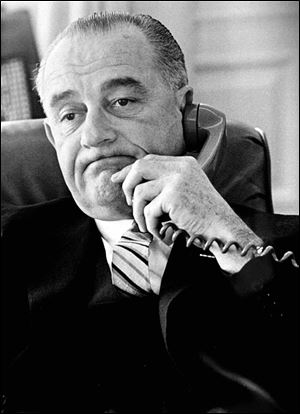
EDITORIAL
Civil society
4/12/2014
Johnson
Fifty years ago, America took a major stride toward becoming a nation that takes its creeds on equality seriously. When President Lyndon B. Johnson signed the Civil Rights Act, it was one of the most important pieces of federal legislation in a century.
This week, President Obama, the nation’s first African-American president, marked the law’s first half-century with former presidents George W. Bush, Bill Clinton, and Jimmy Carter at a civil rights summit at the LBJ Presidential Library.
Mr. Obama’s presidency would not have been possible without passage of the Civil Rights Act, which prohibits discrimination on the basis of race, color, religion, sex, or national origin. Before the law took effect, discrimination was a large part of American life and law.
Powerful interests lined up to oppose President Johnson’s push for equality every step of the way. But thanks to his skill as a negotiator, and his willingness to use the power of his office to persuade reluctant Southern Democrats to do the right thing, a deal was achieved and America took its first fitful steps in a turbulent decade toward becoming an equal-opportunity society.
Fifty years later, the nation has yet to fulfill the promise of equal rights for all. Discrimination still hounds same-sex couples, immigrants, and others. It would be wrong to reflect on how far we have come without acknowledging how far we have yet to go.